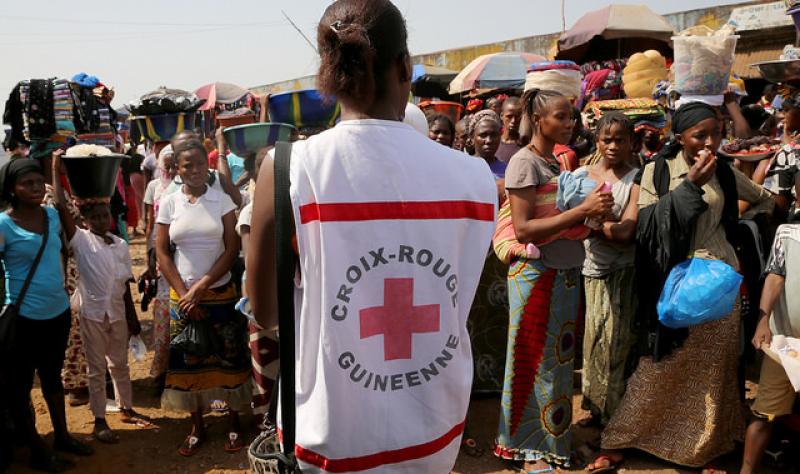
The Regional Director for Africa of the International Federation of Red Cross and Red Crescent Societies (IFRC), Charles Mbeeta Businge, arrived in Guinea on Saturday to begin a three-day official visit, marking his first to West Africa in his new role.
The visit is seen as a strong endorsement of the Guinean Red Cross and the nation’s broader humanitarian contributions.
Businge was warmly received at the national headquarters of the Guinean Red Cross in Kobaya, where five regional committees assembled to welcome the senior humanitarian official.
The ceremony was charged with emotion and mutual respect, highlighting the longstanding partnership between Guinea and the global Red Cross movement.
Dr. Youssouf Traoré, President of the Guinean Red Cross, hailed the visit as a symbolic recognition of the organization’s commitment and resilience.
“We are very proud to welcome the Africa Regional Director for his very first visit to West Africa.
The choice of Guinea reflects the efficiency and rigor of our institution, as well as the remarkable efforts made by our volunteers during various crises,” said Dr. Traoré.
Guinea’s Red Cross volunteers have played pivotal roles in managing major health emergencies, including the Ebola outbreak and the COVID-19 pandemic, as well as responding to floods and other natural disasters.
Dr. Traoré used the occasion to advocate for increased support from international partners to help sustain and expand the Red Cross’s work in Guinea.
“The Federation remains a key partner in implementing our programs.
We have made several pleas, not only for our volunteers and staff, but also to strengthen our partnerships with other National Societies: the French, Italian, Spanish, Danish, and British Red Cross, as well as the Qatari and Saudi Arabian Red Crescent Societies,” he noted.
Businge’s visit includes meetings with Red Cross field teams, government representatives, and community leaders. It aims to assess ongoing programs, explore new partnerships, and strengthen the IFRC’s regional coordination with national societies in West Africa.
The visit reaffirms Guinea’s role as a key player in regional humanitarian action and underscores the critical importance of local volunteer networks in addressing global challenges.



